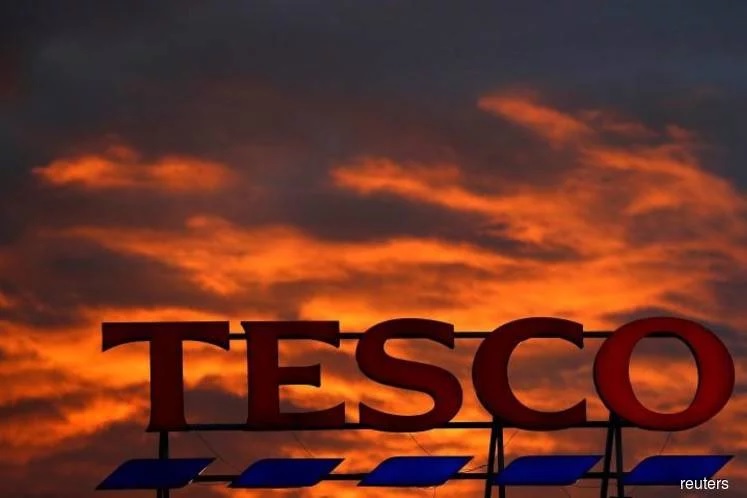
KUALA LUMPUR (March 14): Thailand’s biggest agribusiness conglomerate, Charoen Pokphand Group, faces daunting challenges in Malaysia after winning the bid to buy the Thai and Malaysian businesses of British retailer Tesco Plc last week, The Edge reported today.
The report said the challenges include the local retail sector’s lacklustre performance and the requirement for foreign entrants to sell 30% of the business to a local within three years of its entry into the market.
“Hypermarket operators must provide at least 30% bumiputera or Malay ownership in the company’s equity structure. However, a grace period of three years for compliance may be granted by the Distributive Trade Committee of MDTCA upon the approval of the applications made by the operators,” the Guidelines on Foreign Participation in Distributive Trade Services in Malaysia 2020 read.
The Edge said extensions are sometimes given, as in the case of AEON BiG, possibly because the retailer had not been able to halt the losses of Carrefour’s hypermarket chain, which it purchased eight years ago.
It also said Tesco’s local business is operated under Tesco Stores (M) Sdn Bhd, with Sime Darby Bhd as its 30% local partner.
An observer told The Edge that the value of the business in Malaysia is at US$100 million.
“Sime Darby Bhd is aware of the overall proposed sale by Tesco Plc of Tesco Stores (Malaysia) Sdn Bhd, of which Sime Darby Bhd owns 30%. Both management teams are in contact with each other. There are several procedural matters that are typical to a joint venture of this nature that will need to be fulfilled before an announcement can be made. Sime Darby Bhd will make an announcement at the appropriate time,” the company said in an email to The Edge when asked about its portion of the sale.
Nevertheless, The Edge said reports have put Sime Darby’s portion from the deal at 30% of the US$100 million, which is US$30 million.
While it was announced that the deal was expected to be completed in the second half of 2020, sources told The Edge that Tesco employees have been informed that the transition from Tesco to CP Group would take a total of 12 months.
Tesco began operating in Thailand in 1998 and in Malaysia in 2002. In Malaysia, Tesco has a network of 60 stores, with two more scheduled to open this financial year. It also operates two distribution centres and nine convenience stores (c-stores).
The Edge citing the latest data published by Retail Group Malaysia on behalf of the Malaysia Retailers Association available as at March 12 said the supermarket and hypermarket retail subsector contracted in the first three quarters of 2019 and is expected to end the year on a negative note.
In Malaysia, four foreign hypermarkets operators are loss-making.
Nevertheless, Etiqa Insurance and Takaful Bhd chief strategy officer Chris Eng says, “If anyone has a chance of turning around Tesco in Malaysia, it should be CP Group, given their strong retail experience in Thailand, among which is one of the best chains of 7-Eleven in the world.”
But before this, the deal has a potential hurdle. CP Group needs the approval of Thailand's Office of Trade Competition Commission to complete the deal.
Bloomberg reported that the challenge would be to persuade the Thai antitrust agency to approve the deal as CP already controls a big portion of the market through the operation of 7-Eleven and Siam Makro.
Tesco Lotus, as it is called in Thailand, is said to be Thailand’s biggest supermarket chain, with 1,965 stores as at end-February 2019. The latest purchase could result in its market dominance.
Another poser in Malaysia is whether the CP Group would want to continue the convenience store business held by Tesco in the country.
Last August, The Edge reported that Tesco had until March 31 to seek a partner for the c-store business after Perbadanan Perwira Niaga Malaysia pulled out of its collaboration with the group.
In Malaysia, if a hypermarket operator wants to venture into the c-store business, it would need to get a local partner with a 70% share.
Exastrata Solutions Sdn Bhd chief real estate consultant Adzman Shah Mohd Ariffin, a real estate agent and licensed valuer who has worked with a foreign hypermarket chain, told The Edge that CP Group could be banking on the economic value of the properties to recover its investment.
“For a number of the Tesco Hypermarket locations, the highest and best use is no longer as a hypermarket. Based on the surrounding developments and infrastructural improvements, the sites with sizeable land areas are now ripe for redevelopment and will be able to generate better gross development value. Some sites have excess land area, which can be developed without affecting the hypermarket,” he points out, adding that the rest of the sites can remain as they are.
Read the full report in this week’s The Edge Malaysia
Click here to see commercial properties for sale in Kuala Lumpur.





